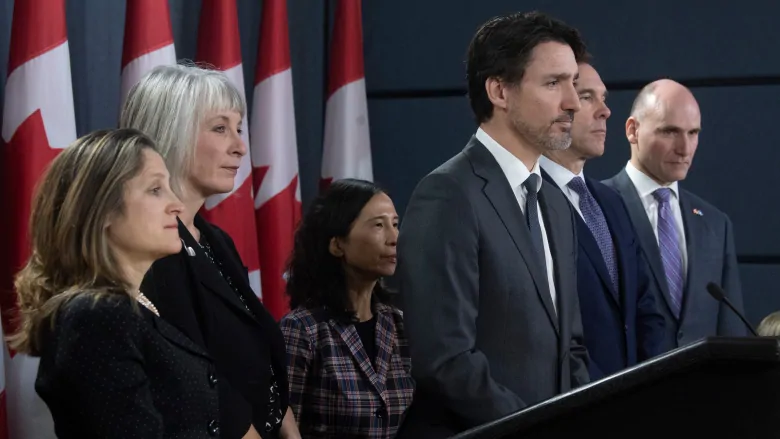Canada missed opportunities early on to tackle the COVID-19 pandemic and put itself in a better position to flatten the curve of infections sooner, say experts looking at the country’s response to the pandemic.

Canada missed opportunities early on to tackle the COVID-19 pandemic and put itself in a better position to flatten the curve of infections sooner, say experts looking at the country’s response to the pandemic.
“Look at what the government has had to do in order to get this under control. Our economy is entirely shut down. The number of Canadians who are unemployed is at record levels,” said Dr. Raiyan Chowdhury, a critical care specialist and ear, nose and throat surgeon at the Royal Alexandra Hospital in Edmonton.
“People’s lives are changed forever.”
Chowdhury said the government took too long to realize how significant the issue was and took too long to call out the severity of the problem.
“I always feel like we’re behind the curve,” he said in an interview.
Chowdhury concedes that hindsight is 20-20 and it’s easier to see mistakes in retrospect, but he points to a list of other countries — South Korea, Singapore, Taiwan and New Zealand — that have fared relatively well to show that other governments, with the same evidence in hand, were quicker to react and did so more decisively.

And they did so on a number of fronts: tighter borders, early and prolific testing and mandatory quarantines. Jurisdictions like Taiwan also immediately put the production of medical supplies, such as masks, into overdrive.
“Like everything when it comes to this pandemic, it’s the people and leaders who moved early that made the difference,” Chowdhury said.
In January, Canada’s chief public health officer, Dr. Theresa Tam, said there would be cases of COVID-19, but “it’s going to be rare.”
All through January and well into February, Health Minister Patty Hajdu and other federal ministers reassured Canadians that the risk of getting the coronavirus in Canada was low, even after the first few cases popped up in the country.
Considering how fast the virus was spreading throughout China and into Europe, that surprised many in the medical and scientific community who were watching.
“How fast can an epidemic spread? The answer used to be as fast as the fastest horse can run or the fastest boat can sail,” Dr. Marcus Powlowski, a physician and Liberal MP who sits on the parliamentary health committee, said in an interview. “Now diseases spread as fast as the fastest plane can travel. That hasn’t been emphasized enough.”
The CBC’s Karina Roman speaks to experts who take stock of how the federal government reacted to the COVID-19 crisis — and whether it was good enough. 6:44
Early focus on repatriation
The government’s initial focus was on repatriating stranded Canadians in Wuhan, China, the epicentre of the outbreak, and subsequently on Canadians to be evacuated from cruise ships. That evolved into a focus on travellers

